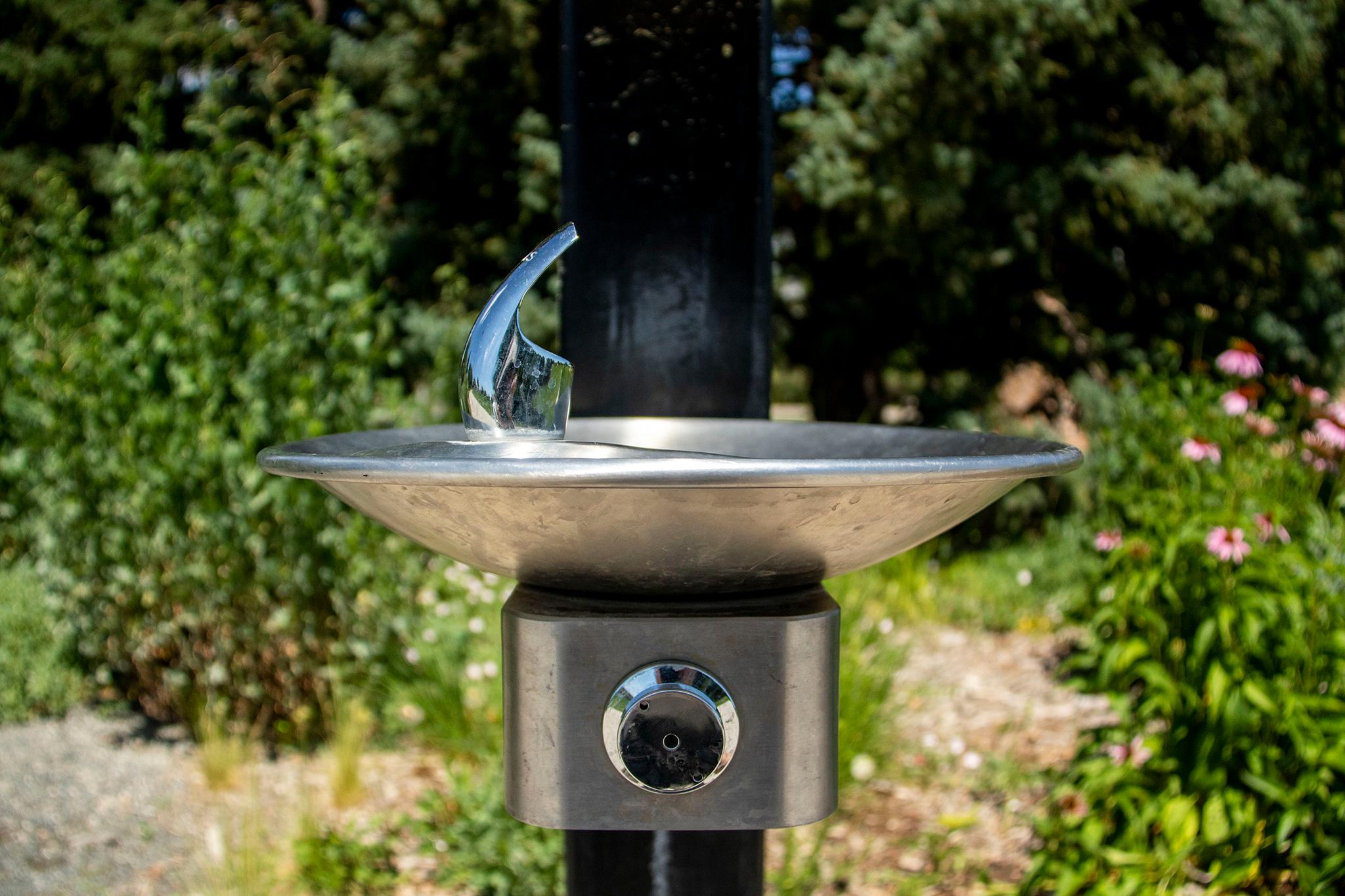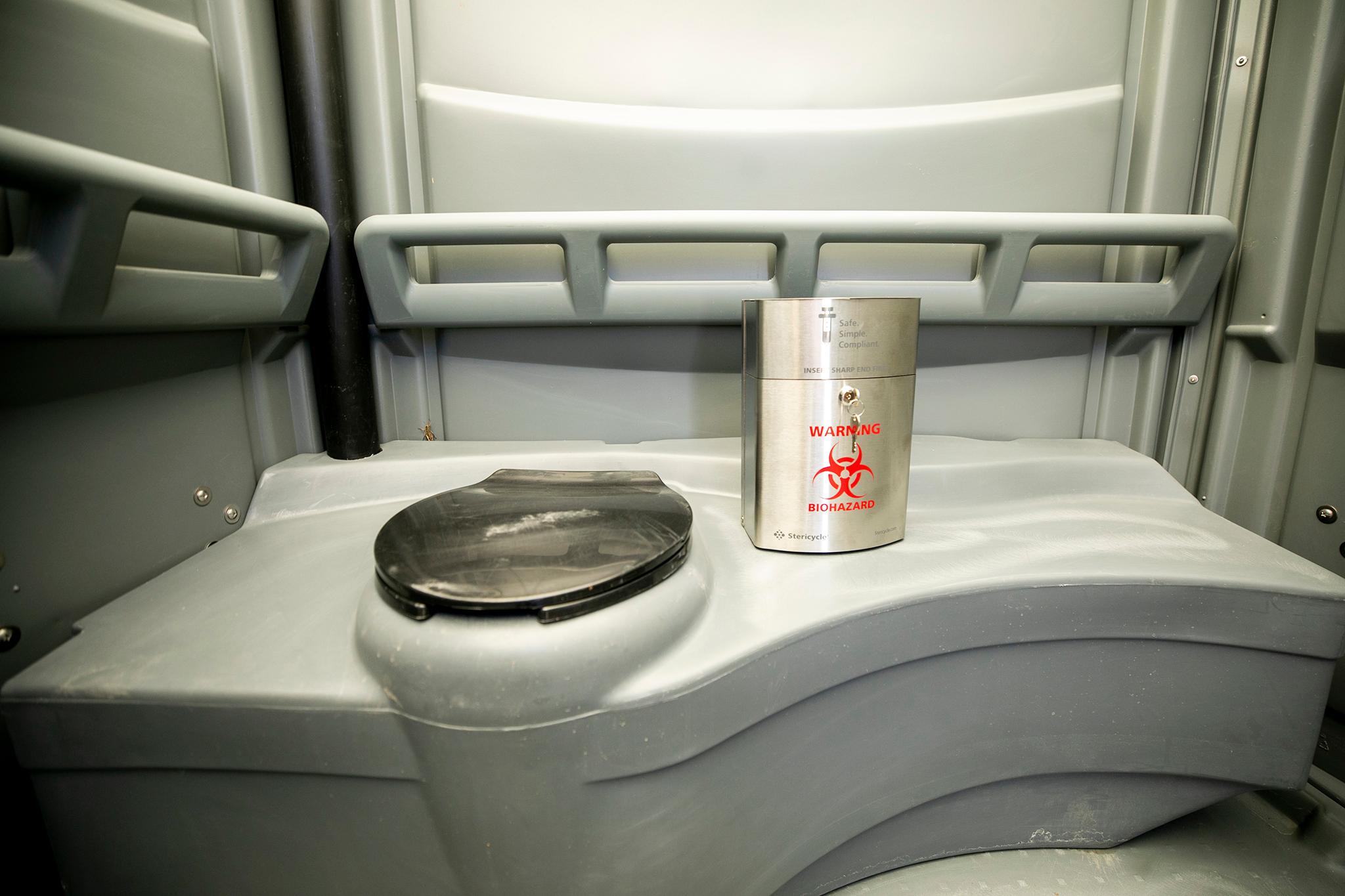If you've ever been on a jog through Denver or stepped off a bus far from a public bathroom and your bowels haven't been, er, settled, you know what happens: When you've got to go, you've got to go.
And if you need a drink of water and there's not a drop to be found, you also know, you can get thirsty, sick and your life can be at risk.
These issues all Denverites face in a city with a lack of public bathrooms and water fountains are especially challenging for people living without homes.
And when people are forced to use the bathroom in alleys, on sidewalks and other public spaces, that becomes a problem for everyone -- one that some advocates say can be easily fixed.
A new study published by the advocacy group, the Housekeys Action Network, or HAND, looks at how badly the bathroom and water situation is going for the growing population of unhoused people in Denver.
HAND teamed up with students and professors from Regis University and the University of Denver from 2020 to 2023 to map out 271 public water fountains and toilets in the city.
They also conducted 193 surveys and held five focus groups with unhoused residents who shared their take on access to bathrooms and water.
What does the study show?
During the summer of 2022, 38% of park facilities -- restrooms and water fountains -- were closed or broken during normal weekday hours.
Nearly 50% of park toilets -- and almost all facilities with plumbing -- were shuttered from October through April.
Between sunset and 6 a.m., all park toilets were closed.
The bathrooms that did exist, especially portable toilets, had broken locks, missing toilet seats, serious sanitation issues, broken or missing locks, no toilet paper and nowhere for handwashing.
Just over half the bathrooms had neither soap nor hand sanitizer.
The situation for disabled people was worse. Only 54% of public bathrooms were accessible.
So what does all this mean for unhoused people trying to use the restroom?
Just under half of the people surveyed are forced to urinate or dedicate without a toilet in tents, using a bag, outdoors, or in an alley or a dumpster.
Roughly a third of people also try to use business toilets, when they're accessible.
Cis-gender men have the easiest time figuring out the city's lack-of-bathrooms situations. Women, transgender and gender nonconforming people have extra health and safety risks.
Nearly a quarter of all open bathrooms lack functioning locks. Almost no permanent bathrooms were designated as gender neutral.
"Most seriously, 2 women we talked to were raped using Porta Potties at night," stated the report.
What about unhoused people trying to drink?
Finding water was a challenge for 65% of people and 67% did not have access to water within two blocks of where they were staying, according to the report.
" The average time it took them to get water was 11 minutes. About half of the survey respondents said they did not have enough water for their daily needs and the average amount used daily was 10.4 liters," noted the report.
More than 54% of the water fountains weren't working in summer 2022. By 2023, that rose, for stretches, to more than two-thirds of water fountains shuttered.
Areas with many encampments had no working water fountains, according to the report.
For what it's worth, back in August, we reported that most of the city's drinking water fountains had been turned back on after the city hired a plumber to carry out maintenance.

So where are people finding water?
Just 9% are relying on public water fountains.
Most -- 45% -- get their water at shelters. Another 37% get water from businesses, 25% buy water, 24% rely on donations, and 15% drink from private spigots. Another 15% use some other source.
Having a lack of water is also making it tough for people to stay clean: 28% of people reported they had physical health issues and 32% of people said they had mental health challenges because it's so tough to stay clean.
What do the advocates want to see from the city?
For starters, HAND proposes the city needs to increase access to bathrooms and water fountains by ensuring bathrooms and water fountains that exist are working.
The group also wants Denver to build more bathrooms and fountains in places unhoused people want to see them. Government buildings and rec centers could do more to open access to bathrooms, and the city could provide more sanitation services at encampments.
Shelters should also keep bathrooms open 24/7, according to the report.
HAND argues the city needs to do more to boost the quality of existing facilities with regular cleaning, more plumbed facilities designed to withstand vandalism, more toilet paper, soap, working locks, pad and tampon dispensers, child changing stations, hand washing stations, and clean water fountains with enough pressure to fill bottles.
The report encourages the city to keep water fountains and toilets open year-round and to winterize bathrooms susceptible to freezing.
The business community should be more involved in the solution by offering a subsidy to those who keep their bathrooms open to all, according to HAND. And the city should do more to challenge anti-homeless rhetoric -- particularly when it comes to talking about sanitation issues.
Water quality should be regularly tested, noted the group, and maps and signs indicating where working bathrooms and water fountains are should be made widely available.
HAND's goal is simple: "Everyone has safe, affordable, dignified, reliable, 24/7 access to water and toilet facilities within 2 blocks (and less than 5 minutes) of where they are staying."












